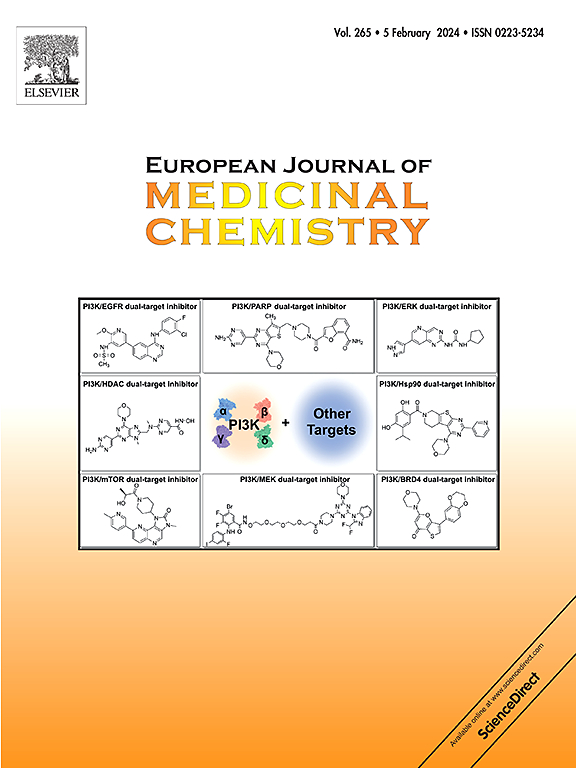fgfr介导的肺癌信号传导的当前见解和障碍
IF 5.9
2区 医学
Q1 CHEMISTRY, MEDICINAL
引用次数: 0
摘要
肺癌仍然是一个重大的健康挑战,成纤维细胞生长因子受体(FGFR)信号在其发病机制中发挥着关键作用。本文综述了FGFR在肺癌内皮功能、血管生成、免疫调节、上皮-间质转化(EMT)和转分化中的作用。此外,FGFR信号还涉及对受体酪氨酸激酶(RTK)、酪氨酸激酶抑制剂(TKIs)的耐药性,尤其是针对EGFR、ALK和MET、免疫检查点抑制剂和肺癌化疗的抑制剂。此外,靶向FGFR的治疗方法包括多靶点TKIs和选择性FGFR抑制剂,它们在FGFR改变的个体中显示出希望。FGFR抑制剂在临床环境中的副作用和相关的管理策略也被概述。此外,个性化FGFR治疗的挑战包括可变的FGFR改变、诊断障碍、生物标志物的选择和验证以及试验设计的复杂性。这一综合综述强调了在肺癌治疗中优化fgfr靶向治疗的创新方法的必要性。本文章由计算机程序翻译,如有差异,请以英文原文为准。


Current insights and barriers in FGFR-mediated signaling in lung cancer
Lung cancer remains a significant health challenge, with fibroblast growth factor receptor (FGFR) signaling emerging as a critical player in its pathogenesis. This review examines FGFR's roles in endothelial function, angiogenesis, immune modulation, epithelial-to-mesenchymal transition (EMT), and transdifferentiation in lung cancer. Moreover, FGFR signaling is implicated in resistance to receptor tyrosine kinase (RTK) tyrosine kinase inhibitors (TKIs), particularly those targeting EGFR, ALK, and MET, immune checkpoint inhibitors, and chemotherapies in lung cancer. Furthermore, therapeutic approaches targeting FGFR include multitarget TKIs and selective FGFR inhibitors, which have shown promise in individuals with FGFR alterations. The side effects of FGFR inhibitors in clinical settings and associated management strategies have also been outlined. Additionally, challenges in personalizing FGFR therapies include variable FGFR alterations, diagnostic hurdles, biomarker selection and validation, and trial design intricacies. This comprehensive overview underscores the necessity for innovative approaches to optimize FGFR-targeted therapies in lung cancer treatment.
求助全文
通过发布文献求助,成功后即可免费获取论文全文。
去求助
来源期刊
CiteScore
11.70
自引率
9.00%
发文量
863
审稿时长
29 days
期刊介绍:
The European Journal of Medicinal Chemistry is a global journal that publishes studies on all aspects of medicinal chemistry. It provides a medium for publication of original papers and also welcomes critical review papers.
A typical paper would report on the organic synthesis, characterization and pharmacological evaluation of compounds. Other topics of interest are drug design, QSAR, molecular modeling, drug-receptor interactions, molecular aspects of drug metabolism, prodrug synthesis and drug targeting. The journal expects manuscripts to present the rational for a study, provide insight into the design of compounds or understanding of mechanism, or clarify the targets.

 求助内容:
求助内容: 应助结果提醒方式:
应助结果提醒方式:


